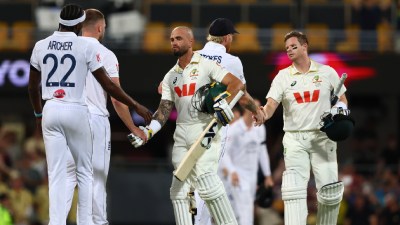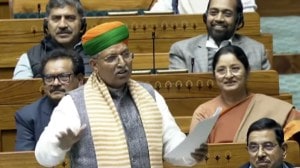Army commissions in-house study on running amok8217; cases
NEW DELHI, June 19: A para-trooper, an officer and a gentleman, Colonel Raj Attawar was one of the stars of his Parachute Regiment. He wo...

NEW DELHI, June 19: A para-trooper, an officer and a gentleman, Colonel Raj Attawar was one of the stars of his Parachute Regiment. 8220;He wouldn8217;t hurt a fly if it did not have to be hurt,8221; says a colleague. On last Saturday, Colonel Attawar was killed, shot by his own jawan, who in psychological parlance, 8220;just lost it8221;.
Or, as the Army is increasingly witnessing in its ranks, 8220;ran amok8221;. Troubled by the frequency of such cases, the force has now commissioned an in-house study. All the units serving in counter-insurgency operations COIN-Ops will submit their analyses and suggest counter-measures. The unit reports will be collated into a larger study recommending pro-active solutions to, what an officer admits, is a looming crisis. 8220;The time,8221; he says, 8220;has come for us to add an American word to our military vocabulary, and that word unfortunately is fragging8217;.8221; The problem has been building up for long. According to officers and jawans serving in COIN-Ops, there are enough reasons for any of them to go berserk. The fall in the standards of military leadership and stress, however, are the primary factors. 8220;Largely it is us leaders who shape the mental make-up of the jawans,8221; says an officer. And when one of them falters, he takes with him many. Officers spoken to refer to a decline in military leadership quality as people stay away from a career full of stress and separation from family, with little financial returns. A large percentage who enter then are those with no other career prospects. 8220;It is a pity that this profession has been reduced to a veritable last choice,8221; says a Colonel involved in the selection process.
As the applicants dwindled, he adds, 8220;selection standards went down so as to make up the numbers. So what we now have is a large number of officers who are inefficient. And so there are cases of fragging.8221;
Added to this is the stress on the job. For its sheer drudgery, COIN-Ops has no parallel and while some revel in the challenge, there are many who just cannot handle the uncertainty. Says a recently decorated officer: 8220;Don8217;t get them wrong, but there are officers and jawans who cannot cope with the demands of COIN-Ops. Put them in a conventional war and they will be tigers.
But this is an entirely different game; guile is the answer. Which is not part of our training.8221; Units may go for months without any encounters with militants. The regimen of patrolling, ambushes, cordon and search, however, is repeated day in and day out, building up frustration. Some end up problem cases, like the jawan who shot Colonel Attawar and three others. The slightest incident then is a provocation. And most commonly, this is refusal of leave. As 8220;units have to maintain a minimum 25 per cent strength at all times8221;, explains a company commander, there are some disgruntled men at any given time. 8220;However much you juggle their leave, there is always somebody who is resentful,8221; he says. 8220;This builds up inside,8221; according to a defence psychologist, 8220;fermented by the exigencies and the sorrowful letters from home.8221;
The latter, in fact, is believed to be a major reason behind the breakdowns. Deployed in places like the Siachen or the Line of Control, the jawans get distressing letters from home but can do little about them. 8220;How does he feel?8221; asks the psychologist. 8220;He has problems at home, is not achieving much in operations; and what is he getting from the nation to fight the enemy? Just Rs 2,500. Self-esteem is bound to suffer, and one day he just loses it.8221;
- 01
- 02
- 03
- 04
- 05































